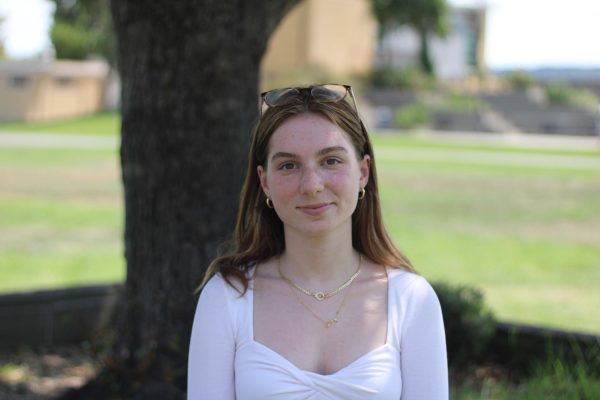Studying the complexities of human nature, unlocking the mysteries of our brain chemistry and learning key tools to improve mental health are just a few of the topics covered in a high school psychology class that compelled me to delve deeper into the field. In freshman year, I had been eagerly anticipating the chance to enroll in a psychology class at Redwood and hoped it would allow me to learn more about the field. However, upon further research, I was disappointed to learn that the class was offered for only one semester and that for me and other passionate students interested in an in-depth psychology class, our only option for a full course of study was to enroll off-campus at the College of Marin. By limiting the psychology course to only one semester, Redwood has overlooked the pressing need for a comprehensive understanding of psychology among students generation.
The innovative American psychologist Albert Ellis once remarked, “I think the future of psychotherapy and psychology is in the school system.” Now, more than ever, this point holds importance. The mental health crisis has become an increasingly prominent issue, especially for Generation Z. In a study issued by the National Library of Medicine in 2023, nearly 20 percent of people ages 3-19 have experienced a mental, emotional, developmental or behavioral disorder. Additionally, suicidal behaviors among high school students increased by 40 percent from 2009 to 2019. These statistics emphasize the importance of taking an in-depth psychology class, as students will be able to not only learn about different types of mental states but also gain the tools to cope with their own mental health.

A psychology course’s unique curriculum not only benefits students’ mental health but has sparked interest among students. The Advanced Placement (AP) Psychology exam attracted the fifth-highest number of students out of the 38 AP subjects offered and was the most popular of the science tests, according to the College Board’s 2021 Program Summary. Despite this data, Redwood has continued to withhold offering a full-year course, inadequately reflecting the potential interests of students.
This is not to say that the current semester-long psychology course has little to offer students. For students interested in a less in-depth course, the current psychology class enables them to understand psychology at a more basic level than a full-year course. Additionally, many students take the course and follow it up by taking Street Law in their second semester. This exposes students who would otherwise not take a psychology course to learn about the subject. Furthermore, the Social Issues course, which freshmen are required to take, already informs students of some of the principles of psychology, which may make another semester of psychology enough.
 Even so, psychology is not a social studies course, but a specialized area of social science that is heavily rooted in the first-hand experiences of empirical research. Students lose their fundamental understanding of the field when complex materials are squeezed into one semester. According to the American Psychological Association National Standard for High School Psychology Curriculum, a psychology course needs to include a breadth of complex units including Biology, Cognition, Development, Social and Personality and Mental and Physical Health, which can only be deeply understood in a year-long course.
Even so, psychology is not a social studies course, but a specialized area of social science that is heavily rooted in the first-hand experiences of empirical research. Students lose their fundamental understanding of the field when complex materials are squeezed into one semester. According to the American Psychological Association National Standard for High School Psychology Curriculum, a psychology course needs to include a breadth of complex units including Biology, Cognition, Development, Social and Personality and Mental and Physical Health, which can only be deeply understood in a year-long course.
Furthermore, a demand for a year-long psychology course is also reflected within the Redwood student body. According to a March Bark Survey, excluding the responses that answered “I don’t know,” 36% of students replied, “yes,” and 23% said “no,” to an academic year-long psychology course rather than the current one.
The demand for studying psychology opens a window into understanding all aspects of human nature, including complex social structures and mindsets. This is more important now than ever, given that teen depression and anxiety is the highest in our nation’s history. Since most students think a year-long psychology course is beneficial, students interested should directly address the issue with the administration and ask for a more in-depth course.







